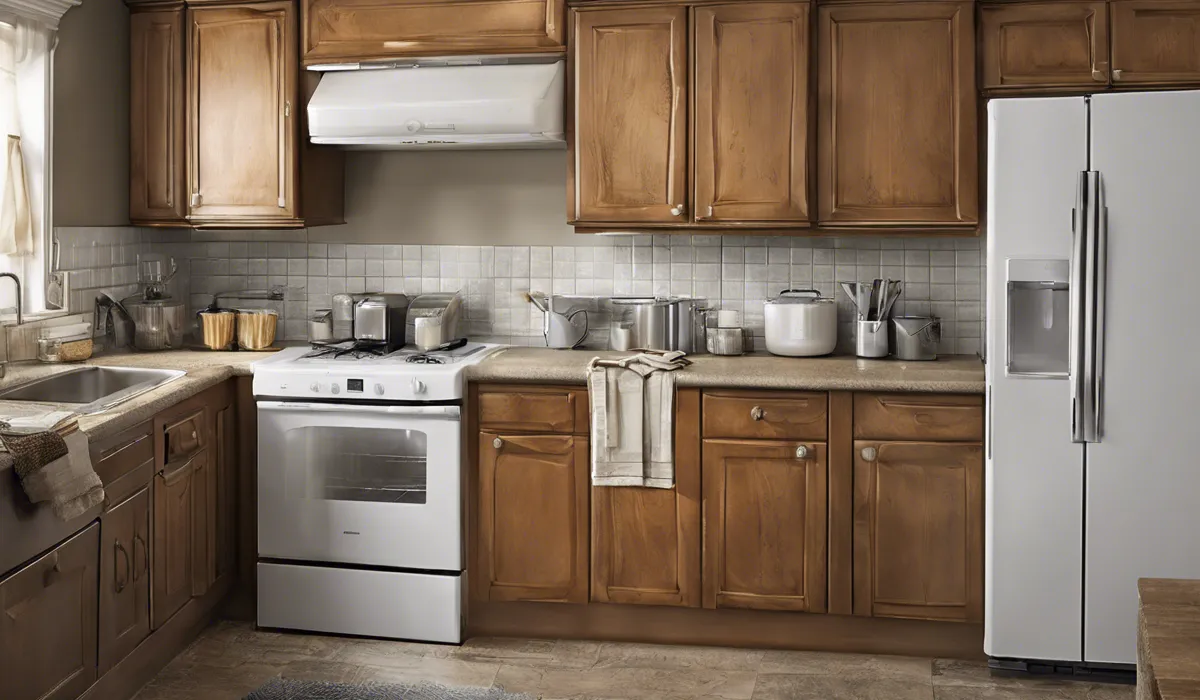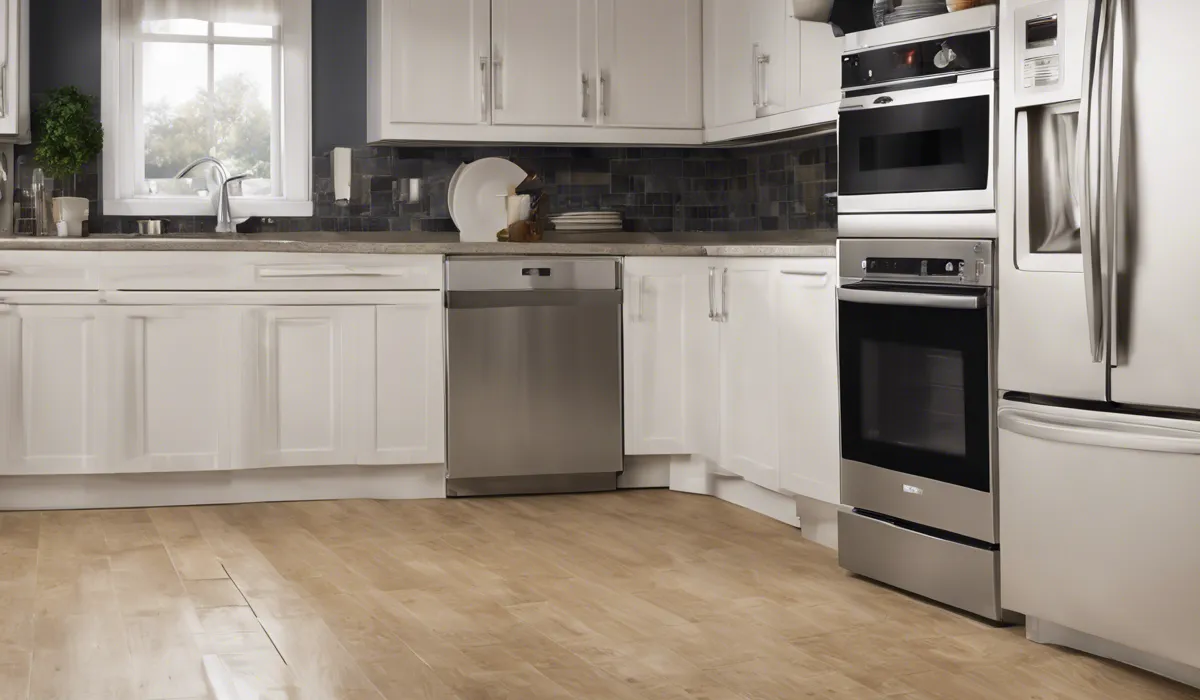Does Landlord Have to Provide Dishwasher? Rental Rights
No, landlords are not legally required to provide a dishwasher. It’s considered an amenity, not a necessity. If a rental has an existing dishwasher, the landlord may be responsible for maintenance, depending on the lease agreement.
Legal Obligations and Landlord Responsibilities

Overview of What Landlords Must Legally Provide
Landlords have a set of legal obligations they must adhere to when renting out properties. These duties ensure the rental space is habitable and safe for tenants.
In most jurisdictions, landlords must provide essentials such as water, heat during cold months, electricity, and sanitary living conditions. The exact requirements can vary, but the goal is to offer a space that meets basic living standards.
Appliances Typically Included in Rental Agreements
Common appliances provided in rental units include stoves, refrigerators, and sometimes microwaves. These are regarded as standard as they are essential for food storage and preparation.
However, the presence of additional appliances like washers, dryers, or dishwashers can depend on the rental market and the landlord’s preferences.
Conditions Under Which a Landlord Is Required to Provide a Dishwasher
Generally, landlords are not required to provide dishwashers as they are seen as amenities rather than necessities.
However, if a dishwasher is included in the rental agreement or if it is present when the tenant moves in, the landlord might be obligated to maintain it in working condition.
Variations in Law by State or Country
Legal requirements for what landlords must provide can differ significantly from one place to another. It is important for both landlords and tenants to understand the specific laws in their state or country.
For instance, some states may have more stringent requirements for the provision of certain amenities in rental units.
The Dishwasher Debate: Amenity or Necessity?

The Changing Expectations of Tenants for Modern Conveniences
As lifestyles evolve, so do tenant expectations. Many now view dishwashers not just as a luxury but as an essential tool for a convenient and efficient household.
This shift in perception is influencing rental markets, with tenants often seeking properties that include modern amenities.
How the Inclusion of a Dishwasher Can Impact Rental Value and Desirability
Properties featuring dishwashers may command higher rent and attract more interest. For landlords, this means that including a dishwasher could be a smart investment, potentially increasing the property’s value and marketability.
Arguments for and Against Landlords Providing Dishwashers
Some argue that landlords should provide dishwashers to stay competitive and meet current housing standards.
Others suggest that by not including a dishwasher, landlords can offer lower rent, appealing to budget-conscious renters. Ultimately, the decision may come down to balancing tenant desires with cost considerations.
The Impact of Market Trends on Landlord Decisions
Market trends play a significant role in a landlord’s decision to include a dishwasher.
In high-demand areas where modern conveniences can set a property apart, landlords may be more inclined to offer such amenities. Conversely, in markets with low demand, the additional cost may not be justifiable.
Managing Dishwasher Issues in Rental Properties

Landlord Responsibilities for Maintenance and Repairs if a Dishwasher Is Provided
When a dishwasher is part of the rental agreement, landlords typically have the responsibility to keep it in good working order. This means addressing any repairs promptly and ensuring the appliance is functional for the duration of the lease.
How to Address the Absence of a Dishwasher in Lease Negotiations
If a tenant desires a dishwasher but the property doesn’t include one, this can be a point of negotiation.
Tenants might request a lower rent or ask the landlord to install a dishwasher before moving in. It is possible to reach a mutually beneficial agreement during these discussions.
Tenant Options for Requesting or Installing a Dishwasher
Tenants who place high importance on having a dishwasher can request permission to install one at their own expense.
Some landlords may allow this addition, provided the installation is done professionally and the unit is returned to its original state at the end of the lease.
The Role of Dishwasher Provision in Tenant Satisfaction and Retention
A dishwasher’s presence can contribute significantly to tenant satisfaction, potentially leading to longer tenancies. Satisfied tenants are more likely to renew their leases, reducing turnover rates and the associated costs for landlords.
FAQs About Landlord Responsibilities for Dishwashers
Is a landlord required to provide a dishwasher in the rental property?
No, landlords are not legally required to provide a dishwasher in a rental property as it is considered an amenity rather than a necessity.
If my rental has a dishwasher, is the landlord responsible for its maintenance?
Yes, if a rental property includes a dishwasher, the landlord is typically responsible for maintenance, but this should be confirmed within the lease agreement.
Can I request that my landlord install a dishwasher?
You can request a dishwasher installation, but your landlord is not obligated to fulfill this request unless it was agreed upon in the lease.
What happens if the dishwasher in my rental breaks down?
If the dishwasher in your rental breaks down, you should report it to your landlord, who may be responsible for the repair or replacement based on your lease agreement.
Are there any circumstances under which a landlord must provide a dishwasher?
No, there are no legal obligations for landlords to provide a dishwasher unless it is specifically included in the terms of the lease agreement.
Final Thoughts
Landlords are not obligated to supply dishwashers in rental properties, as these appliances are considered amenities rather than essentials.
However, if a rental unit includes a dishwasher, the responsibility for its maintenance generally falls on the landlord, subject to the terms outlined within the lease agreement.





